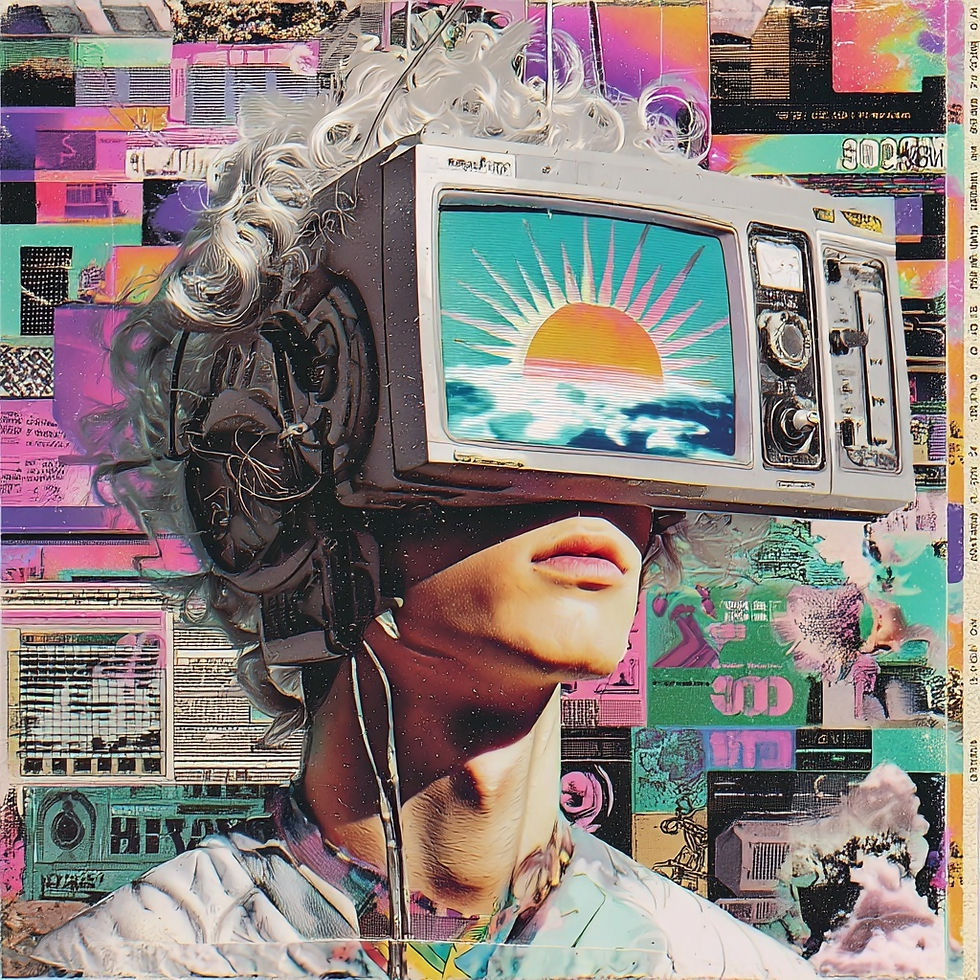Why OpenAI’s New Invention Should Scare the Hell Out of Everyone
- Kirra Pendergast

- Sep 7, 2025
- 3 min read

This is one of those inflection points in tech history that should be lighting up every radar… product, policy, legal, safety, ethical...and yet, the conversation remains surface-level.
A few months ago, OpenAI spent $6.5 billion acquiring Jony Ive’s design firm to build a screenless AI device, with the stated ambition of shipping 100 million units out of the gate.
What they're designing has no screen, no keyboard, no swiping, no scrolling. It’s not a phone, not a laptop, not a wearable, and not an AR headset. It’s being positioned as your “third device” context-aware, always-on, designed to live with you, listen to you, guide your day, and reduce your dependency on your phone. It’ll wake you up, remind you what’s ahead, make suggestions at lunch, reflect with you at night, all with no interface, just presence.
From a hardware design perspective, this is unprecedented. The closest analogies are Humane’s pin and Rabbit R1, who both flirted with this territory and failed spectacularly. OpenAI has something they didn’t: a globally trained, hyper-contextual intelligence stack paired with the design mind that shaped the iPhone. The bet is not on the form factor. It’s on the software ecosystem and ambient AI infrastructure that makes the hardware relevant.
Imagine a screenless device that lives with you and "knows you" must see you, hear you, and interpret your context. That requires continuous data capture. Passive, ambient, intimate. Your conversations, habits, tone of voice, location, and routines. All of it becomes material for computation. It’s not just serving you. It’s learning from you, and potentially for someone else. A surveillance-grade intelligence engine embedded in your daily life.
So, the question is not whether it will work. It’s how it will be governed. Who audits the logic? Who owns the inferences? Where is the red line between “helpful” and “intrusive”? If it’s reflecting on your day, is it storing that data? Can you delete it? Can someone else subpoena it?
This device cannot be governed like a phone or a smart speaker. It’s not transactional tech because it’s relational. Which means the frameworks we use to consent, notice, opt-out, even Terms of Use are structurally obsolete here. A device this intimate demands embedded governance. Not policy written after the fact. System-level constraints built into the very fabric of its operation. Safety, dignity, and defensibility by design from the very beginning, not as an update.
The anthropological risk is profound. As one Reddit post insightfully put it: humans are wired for connection through cues...eye contact, pauses, body language, silence. Machines cannot replicate this. When an AI begins mediating those micro-signals, trust between people atrophies.
It’s the same phenomenon we saw with GPS, fewer people learning to navigate. Or autocorrect, less spelling fluency. But now, the cognitive outsourcing is deeper. How do children raised with this device learn to read social nuance? What does it do to conflict resolution, patience, boredom tolerance? And then there’s the socio-economic divide… who gets the AI “mentor,” and who gets watched by it?
Whether this device becomes a $1 trillion success or a cautionary tale will depend less on what it can do and more on how we govern what it does. The backlash against Humane wasn’t just about battery life. It was about discomfort. People don’t want to be recorded. This will be even more visceral. A silent, watchful companion in public will not just face adoption pushback. It will redefine social contracts. And that’s where the real work lies. Not in guessing whether it’ll kill the smartphone. But in building the governance infrastructure for relational, always-on AI systems, before they become ubiquitous. We don’t get a second shot at this.
If OpenAI is serious about the development of this device, and $6.5B says it is, then governments, regulators, ethicists, educators, and safety leaders should be at the table now. This isn’t science fiction. This is a supply chain-deep, privacy-mapping, child-safety-impacting reality.




Comments